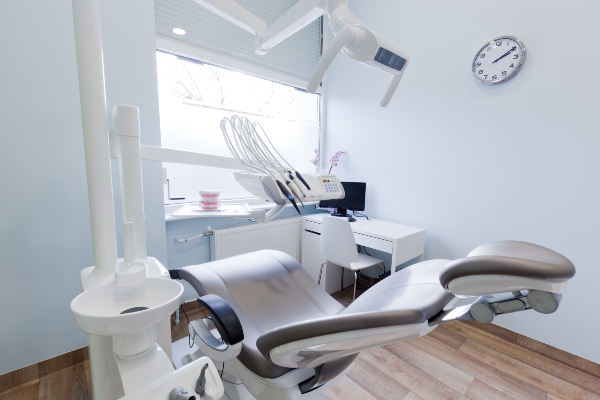An Emergency Dentist Talks About 4 Ways You Can Avoid an Emergency

Do you need an emergency dentist? The best way to deal with a dental emergency is to prevent it from occurring in the first place. Although emergency dentists offer services when urgent dental care is needed, they also strive to help patients prevent emergencies from happening through good oral hygiene, wearing a mouthguard, and avoiding hard and sticky foods.
4 Tips from an emergency dentist on emergency prevention
Everyone should evaluate their daily routine and diet to find ways that they can minimize the risk of damage to teeth from poor oral hygiene or dental trauma. There are several more common ways to avoid a dental emergency, which includes practicing good oral hygiene, protecting teeth properly, and avoiding harmful foods and drinks.
1. Keep teeth healthy with good oral hygiene
One of the main causes of a dental emergency is oral health complications, such as oral infections and severe dental cavities that result in more concerning and painful symptoms. To prevent this, patients should brush their teeth several times a day, floss at least once a day (ideally after each meal), and keep the mouth clean with mouthwash and by drinking water throughout the day. This prevents a build-up of bacteria and food particles that can increase the risk of dental cavities and oral infection.
2. Protect teeth during physical activity
Another reason many visit the emergency dentist is to receive treatment for dental trauma. This occurs when there is a blow to the mouth that results in damage to one or more teeth or the gums. The best way to prevent dental trauma is to take precautions during physical activities such as playing contact sports, lifting weights, and working in outdoor areas (i.e. construction zones). If in a vulnerable situation or area where a blow to the face is possible, then consider wearing a mouthguard or another type of protective gear that reduces the risk of dental trauma.
3. Avoid foods that may cause teeth chips and cracks
Dietary choices play a large role in preventing oral health concerns or dental trauma. To reduce the risk of dental cavities, oral infections, etc., limit the intake of sugar and other carbohydrates. Also, biting down on hard or sticky candies, ice, and other hard foods can damage teeth and even lead to chips and cracks, and being careful while chewing is also essential.
4. Visit the dentist for routine checkup visits
Some cavities that are far back in the mouth are hard to detect without routine checkup visits. Cavities that are not promptly treated can increase the risk of a dental emergency. Subsequently, emergency dentists typically recommend routine checkup visits as a way to minimize the risk of needing emergency treatment to deal with severe tooth pain, sensitivity, and other symptoms of a tooth infection or severe dental cavity.
Looking for an emergency dentist?
If you have a dental emergency and need urgent treatment, then contact our emergency dentist team now for prompt assistance. We take pride in providing quality care to patients who need immediate treatment, and we offer a range of emergency dentistry services.
Are you considering an emergency dentist in the Bryan area? Get more information at http://www.riversdentistry.com.
Check out what others are saying about our services on Yelp: Read our Yelp reviews.
Related Posts
Dental crowns restore teeth compromised by damage or decay. They can repair teeth's appearance and function and last a long time. Though dental crowns can be highly beneficial for those who take good care of their teeth, improper dental care can damage these restorations, impact their effectiveness, and lead to decay and other oral health…
Dental crowns stand out among dental restorations as versatile and effective solutions for various oral health issues. A dental crown, or "cap," is designed to cover and encase a damaged or weakened tooth, restoring its strength, function, and appearance.Over the years, advancements in dental technology have led to the development of various types of dental…
Advancements in orthodontics make it possible to achieve a straighter smile without the noticeable appearance of traditional metal braces. Clear braces provide an option that blends in with natural teeth, offering a more subtle approach to orthodontic treatment. Their translucent or tooth-colored materials allow individuals to correct alignment issues while maintaining a simple aesthetic.Clear braces…
Endodontics is a branch of dentistry that focuses on studying, diagnosing, and treating problems affecting teeth pulp. The most commonly performed endodontic treatment used in dentistry is the root canal, and it allows dentists to save teeth that have severe damage or decay.Root canal treatments are often the last defense when saving a tooth. A…


